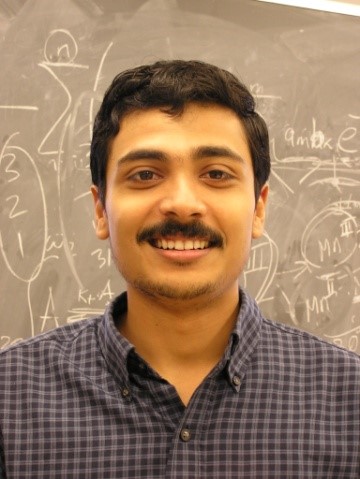 |
Dr Jyotishman Dasgupta received his undergraduate degree in chemistry from Indian Institute of Technology, Kharagpur in 2000. He carried out his Masters thesis under the guidance of Prof. Amit Basak in the chemistry department. Subsequently he moved to Princeton University as a Hughes Stott Taylor graduate fellow where he carried out his Ph.D. work in the field of oxygenic photosynthesis under the supervision of Prof. Charles Dismukes. In 2006, he moved to UC Berkeley where he did his postdoctoral work with Prof. Richard A. Mathies. During his stay at Berkeley, he used femtosecond stimulated Raman spectroscopy to study light-triggered conformation changes in photoactive proteins. After coming back to India in 2010, he set up his independent research group as an Assistant Professor (Reader) at the Tata Institute of Fundamental Research, Mumbai. The central theme of his reserach group is to probe dynamical structural events leading upto charge generation in molecular materials, in order to fabricate bio-inspired devices for solar electricity generation and organic photocatalysis in water. |
| Kanishka Biswas obtained his MS and Ph.D degree from the Solid State Structural Chemistry Unit, Indian Institute of Science (2009) under supervision of Prof. C. N. R. Rao and did postdoctoral research with Prof. Mercouri G. Kanatzidis at the Department of Chemistry, Northwestern University (2009–2012). He is an Assistant Professor in the New Chemistry Unit, Jawaharlal Nehru Centre for Advanced Scientific Research (JNCASR), Bangalore. He is pursuing research in solid state inorganic chemistry of metal chalcogenides, thermoelectrics, topological materials, 2D nanosheets and water purification. He has published 90 research papers, 1 book and 4 book chapters. He is an Young Affiliate of The World Academy of Sciences (TWAS) and an Associate of Indian Academy of Science (IASc), Bangalore, India. He is also recipient of Young Scientist Medal-2016 from Indian National Science Academy (INSA), Delhi, India and Young Scientist Platinum Jubilee Award-2015 from The National Academy of Sciences (NASI), Allahabad, India. He is recipient of IUMRS-MRS Singapore Young Researcher Merit Awards in 2016, and the Materials Research Society of India Medal in 2017. | 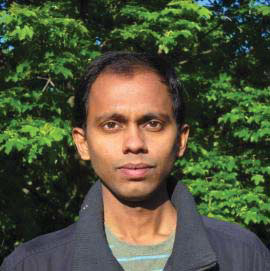 |
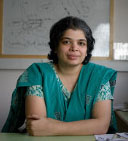 |
Shachi Gosavi obtained her Integrated M.Sc. in Chemistry from the Indian Institute of Technology Bombay, India, and her Ph.D. from the California Institute of Technology, USA. After post-doctoral work at the University of California San Diego, USA, she joined the National Centre for Biological Sciences (NCBS), Bangalore, India as a Reader where her group works on diverse problems in the fields of protein folding and dynamics. |
|
Dr Suman Chakrabarty earned his B.Sc. degree in Chemistry from Presidency College, Kolkata, India in 2002 and M.S. degree in Chemical Sciences from the Indian Institute of Science, Bangalore, India in 2005. He obtained his Ph.D. degree in Theoretical and Computational Chemistry at Indian Institute of Science, Bangalore in 2010 (Advisor: Prof. Biman Bagchi). He was a postdoctoral research associated with Prof. Arieh Warshel at University of Southern California, USA (2009–2012). Subsequently Dr. Chakrabarty returned to India and started his career as an independent researcher in the Physical and Materials Chemistry Division, CSIR-National Chemical Laboratory, Pune, India as a Ramanujan Fellow. In 2017, he joined the School of Chemical Sciences in National Institute of Science Education and Research (NISER), Bhubaneswar, India as Reader-F. His current research interests are computational modelling and simulation of signal transduction and allosteric regulation in proteins, water mediated interactions and self-assembly related phenomena in soft-condensed matter systems with chemical and topographical heterogeneity. |
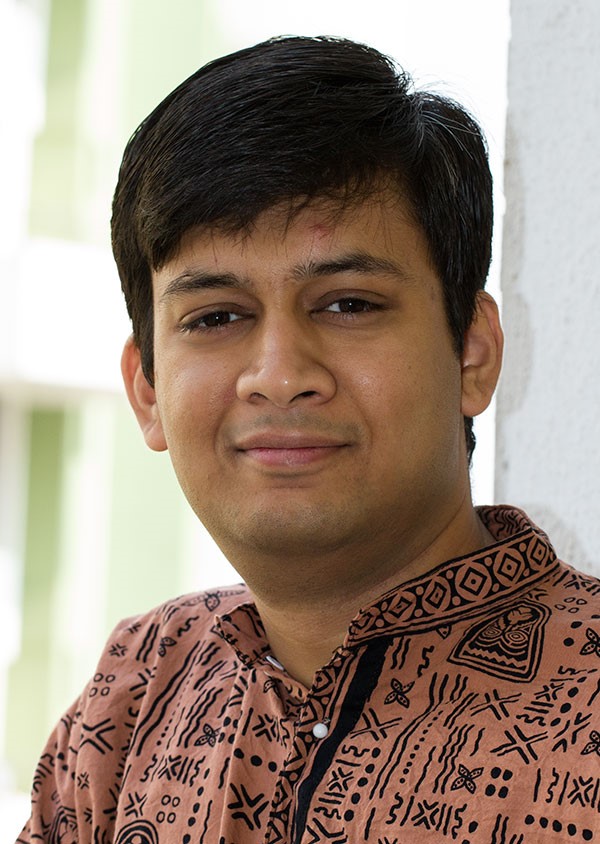 |
 |
Amit Paul was born in 1980 in Kolkata, India. He received his B.Sc. from Jadavpur University, Kolkata, India, and his M.Sc. from Indian Institute of Technology (IIT) Bombay, Mumbai, India. He completed his PhD in 2008 from the Department of Chemistry, University of Pittsburgh under the supervision of Prof. David H. Waldeck. He worked as an energy frontier research center (EFRC)-postdoctoral research associate at the University of North Carolina at Chapel Hill with Prof. Thomas J. Meyer between 2009-2011. Since 2011, he is working as an Assistant Professor at the Department of Chemistry, Indian Institute of Science Education and Research (IISER), Bhopal, India. His research interests include electrochemical supercapacitor, electrocatalysis, solid state proton conduction, electron transfer through molecular bridges, and proton-coupled electron transfer. |
| Dr Kaushik Chatterjee is an Associate Professor in the Department of Materials Engineering and the Centre for Biosystems Science and Engineering of the Indian Institute of Science in Bangalore (India). He received his Ph.D. in Bioengineering from the Pennsylvania State University (USA) and completed a post-doctoral training jointly at the National Institute of Standards and Technology and the National Institutes of Health supported by the US National Research Council Research Associateship Program. Currently he leads a research group working on a wide variety of biomaterials intended for use in biomedical devices and tissue scaffolds. |  |
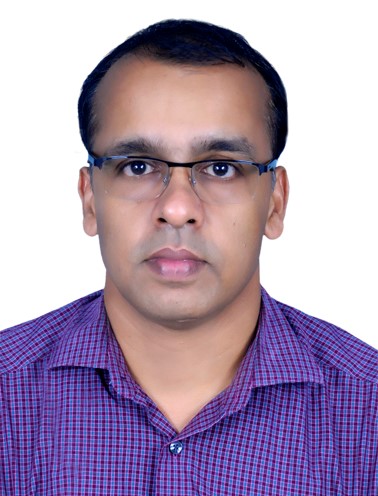 |
Kana Sureshan obtained his Master’s degree in Chemistry from the University of Calicut, in 1996 and Ph. D. in Organic Chemistry from the National Chemical Laboratory, Pune in 2002. He carried out his postdoctoral research as a JSPS postdoctoral fellow at Ehime University, Japan (2002-2004), as a Research Officer at Dept. of Pharmacy and Pharmacology at University of Bath, U. K. (2004-2006) and as an Alexander von Humboldt fellow at Max Planck Institute for Molecular Physiology at Dortmund, Germany (2006-2008). He joined Indian Institute of Science Education and Research Thiruvananthapuram in April 2009. His research interests lie in the area of supramolecular chemistry, carbohydrate chemistry, natural product synthesis and chemical biology. He is an early career editorial board member of ACS Sustainable Chemistry and Engineering. He is the recipient of Ramanujan fellowship, Swarnajayanti Fellowship, Young Scientist award of YIM-Boston, CRSI- Bronze medal and MRSI-Medal. |
| Ravi Venkatramani is a reader in the Department of Chemical Sciences, at Tata Institute of Fundamental Research (TIFR), Mumbai. Ravi obtained his Ph.D. in Physics in 2005 from the University of Rochester, NY, USA. His dissertation topic was on the theoretical modeling of nonlinear optical response of molecules in solution. Subsequently, during 2005-2007, Ravi was a post-doctoral fellow in the Department of Bioengineering, University of Pennsylvania, Philadelphia, PA, USA, where he studied the molecular mechanism of DNA replication/repair by polymerase enzymes using classical and mixed quantum-classical atomistic simulations. From 2007 – 2012, Ravi was a postdoctoral fellow in the Department of Chemistry at Duke University, Durham, NC, USA which involved the modeling of charge transfer reactions in organic molecules and biological systems. At TIFR, Ravi`s research group develops and applies multi-scale modelling and high performance computational simulation methods to describe biomolecular structure and dynamics. Ravi is also developing theoretical formalisms to describe physicochemical processes in biological/molecular systems such as charge/energy transfer and optical response. He is a fellow of the Royal Society of Chemistry and serves as the secretary to the RSC-West India Section. | 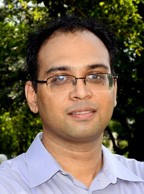 |
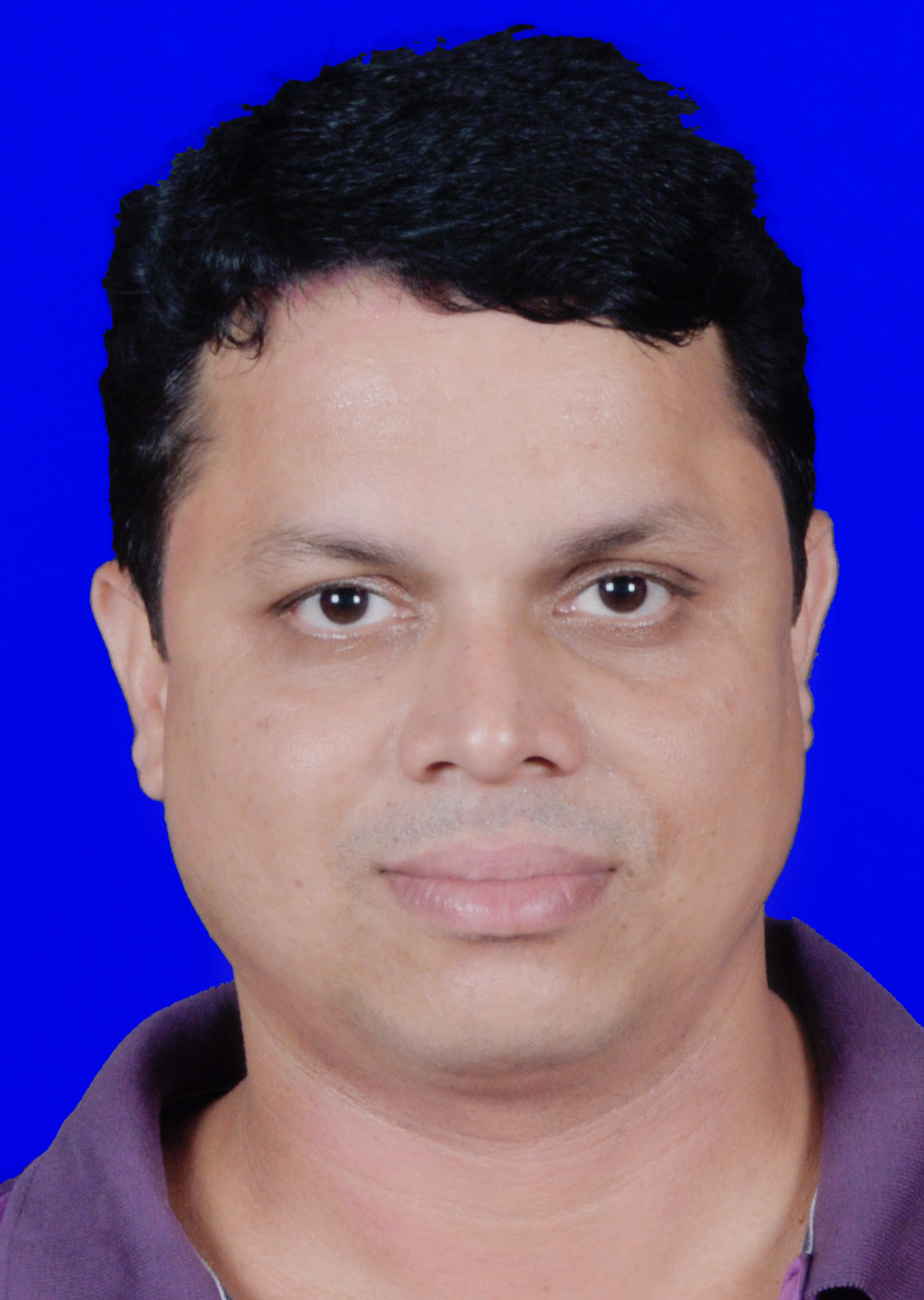 |
Prasenjit Mal was born in 1976 at Lokhesole, Bankura, West Bengal, India. He obtained his MSc degree from Indian Institute of Technology (IIT) Kharagpur in 1999 and followed by PhD at Indian Institute of technology Kanpur in 2005. Then he undertook postdoctoctoral studies at University of Siegen in Germany (with Prof Michael Schmittel) as Alexander von Humboldt Fellow (2006-2007) and at University of Cambridge (with Prof Jonathan R Nitschke) in UK as Marie Curie Fellow (2008-2009). He started an independent research career at NISER Bhubaneswar since December 2009. Currently, he is working on the research area of role of multiple cooperative weak interactions (soft force relay) in organic synthesis and mechanochemistry. |
| Rajarshi Chakrabarti is a theoretical physical chemist by training. He excels in developing Statistical Mechanics based analytically solvable models and also makes use of computer simulations to explore interesting problems in the area of soft matter and chemical physics. He grew up in Kolkata, where he did his bachelors and subsequently masters in Chemistry specializing in Physical Chemistry. In 2003, Rajarshi moved to the Indian Institute of Science to pursue his Ph.D. in Theoretical Chemistry. After two stints of postdocs at the University of Illinois at Urbana Champaign and University of Stuttgart, he started an independent career in 2013 at the Department of Chemistry, Indian Institute of Technology Bombay. His favorite pass times include spending time with his wife and son and playing with his two pet dogs. | 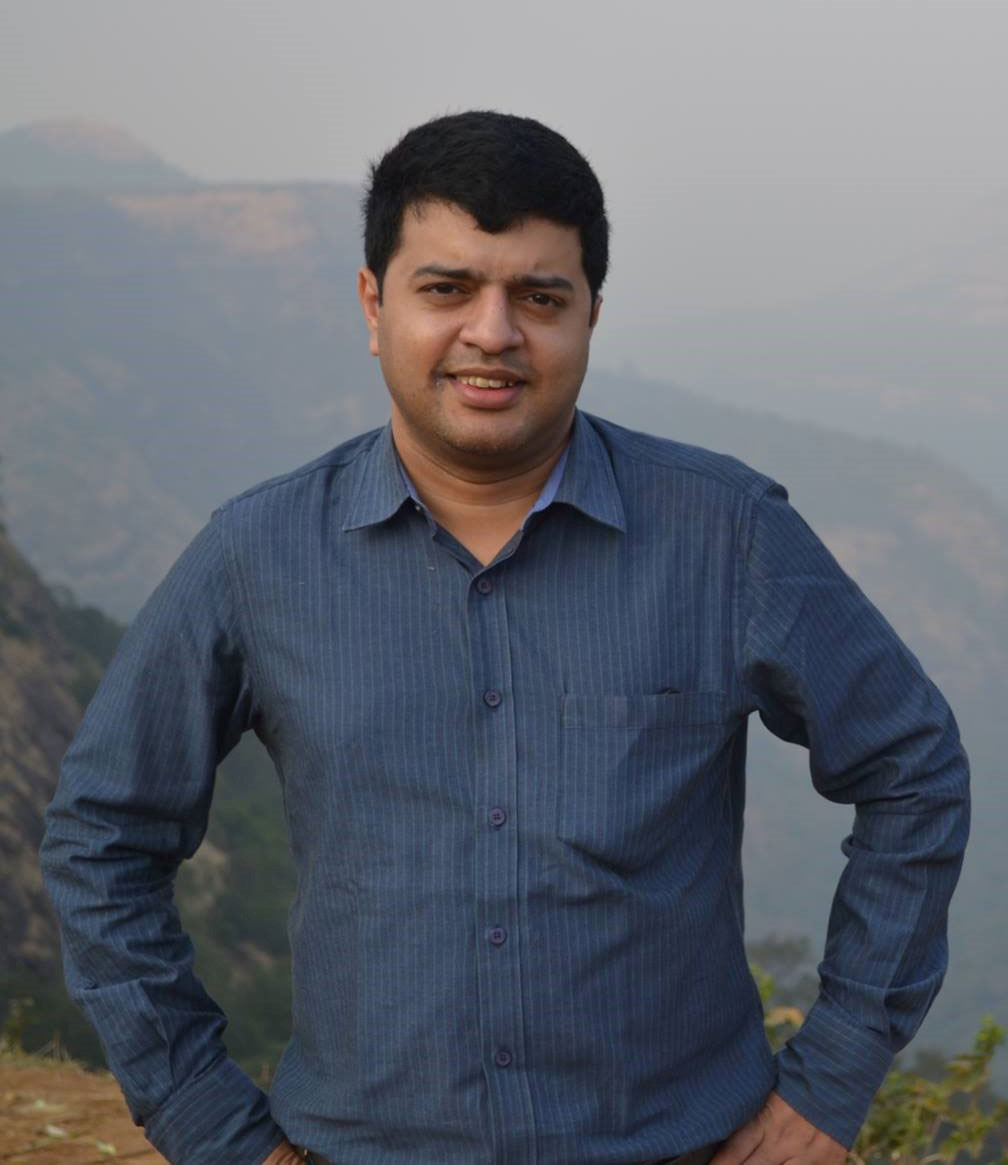 |
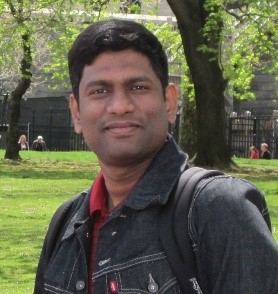 |
Sabuj Kundu obtained his PhD in 2009 from Rutgers, The State University of New Jersey, USA under the supervision of Professor Alan S. Goldman. He worked as a postdoctoral fellow with Professor William D. Jones at University of Rochester, NY (2009-11) and Professor Maurice Brookhart at University of North Carolina at Chapel Hill (2011-13). He returned to Indian Institute of Technology Kanpur as an assistant professor in 2013. He received the DST-INSPIRE fellowship, India. His group is focused on various aspects of homogeneous and heterogeneous catalysis for sustainable chemical transformations. |
| Abhishek Dey was born in Calcutta where he did his BSc in the Presidency College. After completing his MSc at the Indian Institute of Technology, Kanpur, he did his PhD from Stanford University, CA, USA, in 2007 with Prof. Edward I. Solomon. After two years of postdoctoral work with Prof. James P. Collman he joined IACS in June 2009 where he is now an Associate Professor. He is the recipient of ACS division of inorganic chemistry young investigator award, SPP Young investigator award and he has been young associate of the Indian Academy of Science, Bangalore. He is currently serving as editorial advisory board member to Chemical Communications, ACS Catalysis and Journal of Biological Inorganic Chemistry. He is an inorganic chemist interested in generation, storage and transfer of energy. A combination of synthesis, self-assembly, spectroscopy, electrochemistry and electronic structure calculations are used to attain these research goals. | 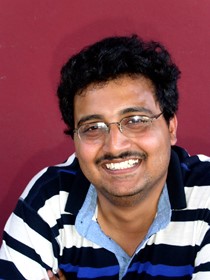 |
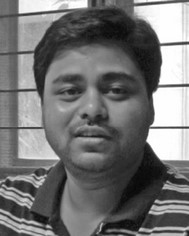 |
Biman Jana was born in West Bengal, India, in 1983. He received his BSc degree (2003) in Chemistry from Calcutta University, India and MSc degree (2005) in chemistry from Indian Institute of Technology, Kanpur, India. He is obtained his PhD in Theoretical Physical chemistry from Indian Institute of Science, Bangalore, India with Professor Biman Bagchi as his advisor. He worked as a Research Associate with Professors Jose Nelson Onuchic from Rice University before returning to India in 2013 to join the faculty of the Indian Association for the Cultivation of Science, Kolkata, India. His group is working actively to explore the basic physical principles behind biological processes using theoretical concepts and computational techniques of Statistical Mechanics. One of the primary research areas is to explore the molecular origin of ice recognition by antifreeze proteins. In addition, his group is actively working on various different biological problems including mehanochemical cycle of motor proteins, protein folding/unfolding and hydrophobic hydration. |
| G. Naresh Patwari received his Ph.D. from the Tata Institute of Fundamental Research, Mumbai in 2000 working on Intramolecular Vibrational Energy redistribution in substituted benzenes with Prof. Sanjay Wategaonkar. Following, he was JSPS postdoctoral fellow at Tohoku University, Japan with Prof. Naohiko Mikami, where he investigated the formation of dihydrogen bonds in the gas phase. In 2002 he moved to the University of Illinois, Urbana-Champaign to work with Prof. James M. Lisy on ion-molecule complexes. Subsequently, in 2003 he returned to India to join the Indian Institute of Technology Bombay as an Assistant Professor in the Department of Chemistry, where he is presently a Professor. His research interests include intermolecular interactions structure and reactivity. Recently, his group started working on understanding various intermolecular phenomena using internal electric fields. Apart from scientific endeavours, Naresh is also passionate about wildlife. | 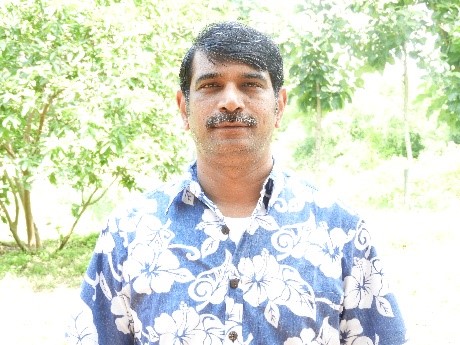 |
 |
Anindya Datta was born in Calcutta and obtained his where he did his B. Sc. (Hons.) degree from Calcutta University, studying in Presidency College. His M. Sc. was from Calcutta University and Ph. D. was from Jadavpur University. He did his Ph. D. as a CSIR reseach fellow with Prof. Kankan Bhattacharyya in Indian Association for the Cultivation of Science. His postdoctoral research was with Prof. Jacob W. Petrich in Iowa State University. After a brief stint in Centre of Advanced Technology, Indore, he joined Indian Institute of Technology Bombay, where he is presently a Professor of Chemistry. He has been named as a recipient of Bronze Medal by Chemical Research Society of India and has been elected to the Fellowship of National Academy of Science, India. His research interest is in ultrafast processes in Chemistry and Materials Science. |










